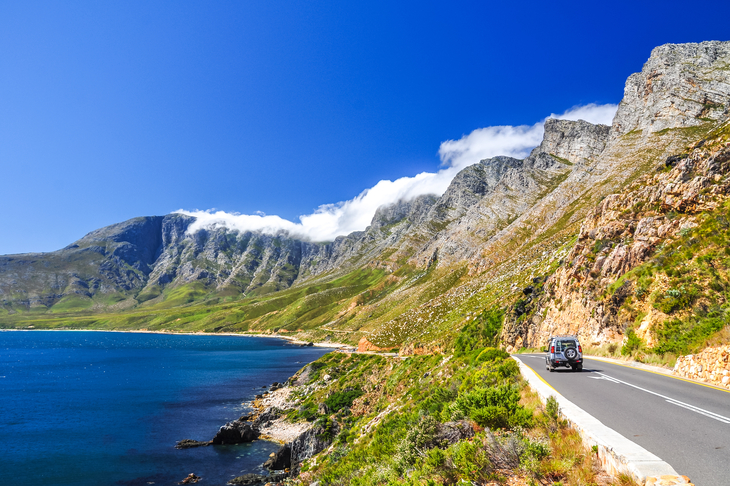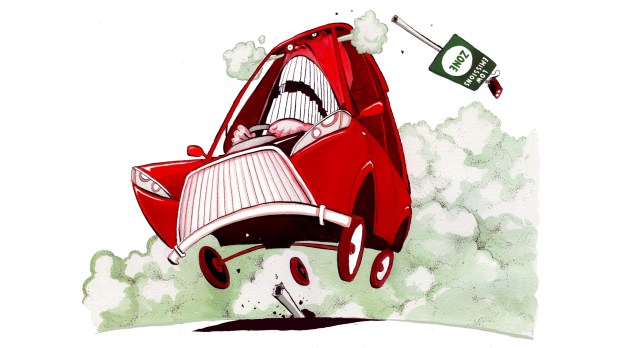I am currently in Brittany with the family, having made the 11-hour drive from London on Monday. It sounds like quite a lot of effort for a few days’ holiday, but my friend Wendy Steavenson invited us to stay and that so rarely happens when you’ve got four children that we felt we couldn’t turn her down. No doubt Wendy will regret this after 24 hours, as nearly all our previous hosts have.
The journey wasn’t as much of an ordeal as it sounds since Caroline did the driving and I sat in the back and read Jonah Goldberg’s Suicide of the West. It’s a highly readable, 351-page polemical essay about the ‘miracle’ that is capitalist liberal democracy, pointing out that its survival depends upon resisting the lure of various anti-modern, romantic ideologies and remaining true to the values of the enlightenment. He’s particularly concerned about the rise of the neo-Marxist intersectionality cult that is spreading its poisonous, anti-western dogma through our most important institutions. I found the whole thing utterly convincing.
Just before this trip I bought a second-hand car, an experience that can test the faith of even the most fervent capitalist. On the one hand, the safety, reliability and affordability of modern automobiles is a great argument in favour of the free market — just compare the cars manufactured in the capitalist West with those produced in Russia and eastern Europe before 1989.
But the reason my family needs a new car is because my diesel-powered VW Transporter doesn’t comply with the new Euro 6 emissions standards, which means that, from next year, we’d have to pay a £12.50 emissions surcharge every time we drive in central London. Is the failure of diesel cars manufactured before 2015 to meet various environmental standards an indictment of capitalism? The infamous Volkswagen fraud, whereby the German automaker programmed some of its diesel engines to activate their emissions controls only during lab tests so they would fool US regulators, is often held up as an example of corporate greed run amok.
But you could equally argue the diesel scandal wouldn’t have happened if EU policymakers hadn’t conspired with European car manufacturers to rig the internal market in their favour by introducing regulations that meant diesel engines were held to a lower standard. These non-tariff barriers made it difficult for non-EU automakers, who mainly produce petrol cars, to compete — and the fact that diesel cars were given a pass in Europe but not in America gave Volks-wagen a financial incentive to cheat. That’s not an argument against the free enterprise system, but against crony capitalism. It’s also a good illustration of one of Goldberg’s central points, which is that a lack of democratic accountability leads to the corruption of the political class.
I spent about a week working out how to get the best deal, and eventually plumped for a used VW Touran through an authorised dealer in Guildford. It’s also diesel-powered, which is a bit of a risk, but it complies with the new emissions standards because it was manufactured in 2017. It has two-and-a-half years left to run on the manufacturer’s warranty and has done less than 6,000 miles, but it’s about 25 per cent cheaper than it would be if I’d bought it new. I got £6,000 for my Transporter in a part-exchange deal and by entering into a financing arrangement through the dealer, and then immediately paying it off, managed to get the first two services for free. Finally, I arranged to keep the Transporter for an additional week so I could use it to drive to Brittany and back, thereby avoiding adding more than 1,000 miles to the clock of the Touran.
Admittedly, it’s a dull-looking beast. The Transporter is boxy and inelegant, but has the distinction of being huge. Caroline enjoyed the elevated driving position that enabled her to look down her nose at drivers of more expensive Chelsea tractors. The Touran, by contrast, looks like any other people-carrier. It’s essentially a seven-seater crammed on to the platform of a hatchback — in this case, a VW Golf — which means that when the two rearmost seats are in use there’s next to no luggage space.
Not ideal for family holidays, but since we cannot afford to rent a house large enough to accommodate all of us, and Wendy will never invite us to stay again, that won’t be an issue.
Got something to add? Join the discussion and comment below.
Get 10 issues for just $10
Subscribe to The Spectator Australia today for the next 10 magazine issues, plus full online access, for just $10.
You might disagree with half of it, but you’ll enjoy reading all of it. Try your first month for free, then just $2 a week for the remainder of your first year.















Comments
Don't miss out
Join the conversation with other Spectator Australia readers. Subscribe to leave a comment.
SUBSCRIBEAlready a subscriber? Log in